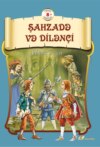Kitabı oku: «Personal Recollections of Joan of Arc — Volume 1», sayfa 3
Chapter 4 Joan Tames the Mad Man
ALL CHILDREN have nicknames, and we had ours. We got one apiece early, and they stuck to us; but Joan was richer in this matter, for, as time went on, she earned a second, and then a third, and so on, and we gave them to her. First and last she had as many as half a dozen. Several of these she never lost. Peasant-girls are bashful naturally; but she surpassed the rule so far, and colored so easily, and was so easily embarrassed in the presence of strangers, that we nicknamed her the Bashful. We were all patriots, but she was called the Patriot, because our warmest feeling for our country was cold beside hers. Also she was called the Beautiful; and this was not merely because of the extraordinary beauty of her face and form, but because of the loveliness of her character. These names she kept, and one other — the Brave.
We grew along up, in that plodding and peaceful region, and got to be good-sized boys and girls — big enough, in fact, to begin to know as much about the wars raging perpetually to the west and north of us as our elders, and also to feel as stirred up over the occasional news from these red fields as they did. I remember certain of these days very clearly. One Tuesday a crowd of us were romping and singing around the Fairy Tree, and hanging garlands on it in memory of our lost little fairy friends, when Little Mengette cried out:
“Look! What is that?”
When one exclaims like that in a way that shows astonishment and apprehension, he gets attention. All the panting breasts and flushed faces flocked together, and all the eager eyes were turned in one direction — down the slope, toward the village.
“It’s a black flag.”
“A black flag! No — is it?”
“You can see for yourself that it is nothing else.”
“It is a black flag, sure! Now, has any ever seen the like of that before?”
“What can it mean?”
“Mean? It means something dreadful — what else?”
“That is nothing to the point; anybody knows that without the telling. But what? — that is the question.”
“It is a chance that he that bears it can answer as well as any that are here, if you contain yourself till he comes.”
“He runs well. Who is it?”
Some named one, some another; but presently all saw that it was Etienne Roze, called the Sunflower, because he had yellow hair and a round pock-marked face. His ancestors had been Germans some centuries ago. He came straining up the slope, now and then projecting his flag-stick aloft and giving his black symbol of woe a wave in the air, whilst all eyes watched him, all tongues discussed him, and every heart beat faster and faster with impatience to know his news. At last he sprang among us, and struck his flag-stick into the ground, saying:
“There! Stand there and represent France while I get my breath. She needs no other flag now.”
All the giddy chatter stopped. It was as if one had announced a death. In that chilly hush there was no sound audible but the panting of the breath-blown boy. When he was presently able to speak, he said:
“Black news is come. A treaty has been made at Troyes between France and the English and Burgundians. By it France is betrayed and delivered over, tied hand and foot, to the enemy. It is the work of the Duke of Burgundy and that she-devil, the Queen of France. It marries Henry of England to Catharine of France — ”
“Is not this a lie? Marries the daughter of France to the Butcher of Agincourt? It is not to be believed. You have not heard aright.”
“If you cannot believe that, Jacques d’Arc, then you have a difficult task indeed before you, for worse is to come. Any child that is born of that marriage — if even a girl — is to inherit the thrones of both England and France, and this double ownership is to remain with its posterity forever!”
“Now that is certainly a lie, for it runs counter to our Salic law, and so is not legal and cannot have effect,” said Edmond Aubrey, called the Paladin, because of the armies he was always going to eat up some day. He would have said more, but he was drowned out by the clamors of the others, who all burst into a fury over this feature of the treaty, all talking at once and nobody hearing anybody, until presently Haumette persuaded them to be still, saying:
“It is not fair to break him up so in his tale; pray let him go on. You find fault with his history because it seems to be lies. That were reason for satisfaction — that kind of lies — not discontent. Tell the rest, Etienne.”
“There is but this to tell: Our King, Charles VI., is to reign until he dies, then Henry V. of England is to be Regent of France until a child of his shall be old enough to — ”
“That man is to reign over us — the Butcher? It is lies! all lies!” cried the Paladin. “Besides, look you — what becomes of our Dauphin? What says the treaty about him?”
“Nothing. It takes away his throne and makes him an outcast.”
Then everybody shouted at once and said the news was a lie; and all began to get cheerful again, saying, “Our King would have to sign the treaty to make it good; and that he would not do, seeing how it serves his own son.”
But the Sunflower said: “I will ask you this: Would the Queen sign a treaty disinheriting her son?”
“That viper? Certainly. Nobody is talking of her. Nobody expects better of her. There is no villainy she will stick at, if it feed her spite; and she hates her son. Her signing it is of no consequence. The King must sign.”
“I will ask you another thing. What is the King’s condition? Mad, isn’t he?”
“Yes, and his people love him all the more for it. It brings him near to them by his sufferings; and pitying him makes them love him.”
“You say right, Jacques d’Arc. Well, what would you of one that is mad? Does he know what he does? No. Does he do what others make him do? Yes. Now, then, I tell you he has signed the treaty.”
“Who made him do it?”
“You know, without my telling. The Queen.”
Then there was another uproar — everybody talking at once, and all heaping execrations upon the Queen’s head. Finally Jacques d’Arc said:
“But many reports come that are not true. Nothing so shameful as this has ever come before, nothing that cuts so deep, nothing that has dragged France so low; therefore there is hope that this tale is but another idle rumor. Where did you get it?”
The color went out of his sister Joan’s face. She dreaded the answer; and her instinct was right.
“The cure of Maxey brought it.”
There was a general gasp. We knew him, you see, for a trusty man.
“Did he believe it?”
The hearts almost stopped beating. Then came the answer:
“He did. And that is not all. He said he knew it to be true.”
Some of the girls began to sob; the boys were struck silent. The distress in Joan’s face was like that which one sees in the face of a dumb animal that has received a mortal hurt. The animal bears it, making no complaint; she bore it also, saying no word. Her brother Jacques put his hand on her head and caressed her hair to indicate his sympathy, and she gathered the hand to her lips and kissed it for thanks, not saying anything. Presently the reaction came, and the boys began to talk. Noel Rainguesson said:
“Oh, are we never going to be men! We do grow along so slowly, and France never needed soldiers as she needs them now, to wipe out this black insult.”
“I hate youth!” said Pierre Morel, called the Dragon-fly because his eyes stuck out so. “You’ve always got to wait, and wait, and wait — and here are the great wars wasting away for a hundred years, and you never get a chance. If I could only be a soldier now!”
“As for me, I’m not going to wait much longer,” said the Paladin; “and when I do start you’ll hear from me, I promise you that. There are some who, in storming a castle, prefer to be in the rear; but as for me, give me the front or none; I will have none in front of me but the officers.”
Even the girls got the war spirit, and Marie Dupont said:
“I would I were a man; I would start this minute!” and looked very proud of herself, and glanced about for applause.
“So would I,” said Cecile Letellier, sniffing the air like a war-horse that smells the battle; “I warrant you I would not turn back from the field though all England were in front of me.”
“Pooh!” said the Paladin; “girls can brag, but that’s all they are good for. Let a thousand of them come face to face with a handful of soldiers once, if you want to see what running is like. Here’s little Joan — next she’ll be threatening to go for a soldier!”
The idea was so funny, and got such a good laugh, that the Paladin gave it another trial, and said: “Why you can just see her! — see her plunge into battle like any old veteran. Yes, indeed; and not a poor shabby common soldier like us, but an officer — an officer, mind you, with armor on, and the bars of a steel helmet to blush behind and hide her embarrassment when she finds an army in front of her that she hasn’t been introduced to. An officer? Why, she’ll be a captain! A captain, I tell you, with a hundred men at her back — or maybe girls. Oh, no common-soldier business for her! And, dear me, when she starts for that other army, you’ll think there’s a hurricane blowing it away!”
Well, he kept it up like that till he made their sides ache with laughing; which was quite natural, for certainly it was a very funny idea — at that time — I mean, the idea of that gentle little creature, that wouldn’t hurt a fly, and couldn’t bear the sight of blood, and was so girlish and shrinking in all ways, rushing into battle with a gang of soldiers at her back. Poor thing, she sat there confused and ashamed to be so laughed at; and yet at that very minute there was something about to happen which would change the aspect of things, and make those young people see that when it comes to laughing, the person that laughs last has the best chance. For just then a face which we all knew and all feared projected itself from behind the Fairy Tree, and the thought that shot through us all was, crazy Benoist has gotten loose from his cage, and we are as good as dead! This ragged and hairy and horrible creature glided out from behind the tree, and raised an ax as he came. We all broke and fled, this way and that, the girls screaming and crying. No, not all; all but Joan. She stood up and faced the man, and remained so. As we reached the wood that borders the grassy clearing and jumped into its shelter, two or three of us glanced back to see if Benoist was gaining on us, and that is what we saw — Joan standing, and the maniac gliding stealthily toward her with his ax lifted. The sight was sickening. We stood where we were, trembling and not able to move. I did not want to see the murder done, and yet I could not take my eyes away. Now I saw Joan step forward to meet the man, though I believed my eyes must be deceiving me. Then I saw him stop. He threatened her with his ax, as if to warn her not to come further, but she paid no heed, but went steadily on, until she was right in front of him — right under his ax. Then she stopped, and seemed to begin to talk with him. It made me sick, yes, giddy, and everything swam around me, and I could not see anything for a time — whether long or brief I do not know. When this passed and I looked again, Joan was walking by the man’s side toward the village, holding him by his hand. The ax was in her other hand.
One by one the boys and girls crept out, and we stood there gazing, open-mouthed, till those two entered the village and were hid from sight. It was then that we named her the Brave.
We left the black flag there to continue its mournful office, for we had other matter to think of now. We started for the village on a run, to give warning, and get Joan out of her peril; though for one, after seeing what I had seen, it seemed to me that while Joan had the ax the man’s chance was not the best of the two. When we arrived the danger was past, the madman was in custody. All the people were flocking to the little square in front of the church to talk and exclaim and wonder over the event, and it even made the town forget the black news of the treaty for two or three hours.
All the women kept hugging and kissing Joan, and praising her, and crying, and the men patted her on the head and said they wished she was a man, they would send her to the wars and never doubt but that she would strike some blows that would be heard of. She had to tear herself away and go and hide, this glory was so trying to her diffidence.
Of course the people began to ask us for the particulars. I was so ashamed that I made an excuse to the first comer, and got privately away and went back to the Fairy Tree, to get relief from the embarrassment of those questionings. There I found Joan, but she was there to get relief from the embarrassment of glory. One by one the others shirked the inquirers and joined us in our refuge. Then we gathered around Joan, and asked her how she had dared to do that thing. She was very modest about it, and said:
“You make a great thing of it, but you mistake; it was not a great matter. It was not as if I had been a stranger to the man. I know him, and have known him long; and he knows me, and likes me. I have fed him through the bars of his cage many times; and last December, when they chopped off two of his fingers to remind him to stop seizing and wounding people passing by, I dressed his hand every day till it was well again.”
“That is all well enough,” said Little Mengette, “but he is a madman, dear, and so his likings and his gratitude and friendliness go for nothing when his rage is up. You did a perilous thing.”
“Of course you did,” said the Sunflower. “Didn’t he threaten to kill you with the ax?”
“Yes.”
“Didn’t he threaten you more than once?”
“Yes.”
“Didn’t you feel afraid?”
“No — at least not much — very little.”
“Why didn’t you?”
She thought a moment, then said, quite simply:
“I don’t know.”
It made everybody laugh. Then the Sunflower said it was like a lamb trying to think out how it had come to eat a wolf, but had to give it up.
Cecile Letellier asked, “Why didn’t you run when we did?”
“Because it was necessary to get him to his cage; else he would kill some one. Then he would come to the like harm himself.”
It is noticeable that this remark, which implies that Joan was entirely forgetful of herself and her own danger, and had thought and wrought for the preservation of other people alone, was not challenged, or criticized, or commented upon by anybody there, but was taken by all as matter of course and true. It shows how clearly her character was defined, and how well it was known and established.
There was silence for a time, and perhaps we were all thinking of the same thing — namely, what a poor figure we had cut in that adventure as contrasted with Joan’s performance. I tried to think up some good way of explaining why I had run away and left a little girl at the mercy of a maniac armed with an ax, but all of the explanations that offered themselves to me seemed so cheap and shabby that I gave the matter up and remained still. But others were less wise. Noel Rainguesson fidgeted awhile, then broke out with a remark which showed what his mind had been running on:
“The fact is, I was taken by surprise. That is the reason. If I had had a moment to think, I would no more have thought of running that I would think of running from a baby. For, after all, what is Theophile Benoist, that I should seem to be afraid of him? Pooh! the idea of being afraid of that poor thing! I only wish he would come along now — I’d show you!”
“So do I!” cried Pierre Morel. “If I wouldn’t make him climb this tree quicker than — well, you’d see what I would do! Taking a person by surprise, that way — why, I never meant to run; not in earnest, I mean. I never thought of running in earnest; I only wanted to have some fun, and when I saw Joan standing there, and him threatening her, it was all I could do to restrain myself from going there and just tearing the livers and lights out of him. I wanted to do it bad enough, and if it was to do over again, I would! If ever he comes fooling around me again, I’ll — ”
“Oh, hush!” said the Paladin, breaking in with an air of disdain; “the way you people talk, a person would think there’s something heroic about standing up and facing down that poor remnant of a man. Why, it’s nothing! There’s small glory to be got in facing him down, I should say. Why, I wouldn’t want any better fun than to face down a hundred like him. If he was to come along here now, I would walk up to him just as I am now — I wouldn’t care if he had a thousand axes — and say — ”
And so he went on and on, telling the brave things he would say and the wonders he would do; and the others put in a word from time to time, describing over again the gory marvels they would do if ever that madman ventured to cross their path again, for next time they would be ready for him, and would soon teach him that if he thought he could surprise them twice because he had surprised them once, he would find himself very seriously mistaken, that’s all.
And so, in the end, they all got back their self-respect; yes, and even added somewhat to it; indeed when the sitting broke up they had a finer opinion of themselves than they had ever had before.
Chapter 5 Domremy Pillaged and Burned
THEY WERE peaceful and pleasant, those young and smoothly flowing days of ours; that is, that was the case as a rule, we being remote from the seat of war; but at intervals roving bands approached near enough for us to see the flush in the sky at night which marked where they were burning some farmstead or village, and we all knew, or at least felt, that some day they would come yet nearer, and we should have our turn. This dull dread lay upon our spirits like a physical weight. It was greatly augmented a couple of years after the Treaty of Troyes.
It was truly a dismal year for France. One day we had been over to have one of our occasional pitched battles with those hated Burgundian boys of the village of Maxey, and had been whipped, and were arriving on our side of the river after dark, bruised and weary, when we heard the bell ringing the tocsin. We ran all the way, and when we got to the square we found it crowded with the excited villagers, and weirdly lighted by smoking and flaring torches.
On the steps of the church stood a stranger, a Burgundian priest, who was telling the people news which made them weep, and rave, and rage, and curse, by turns. He said our old mad King was dead, and that now we and France and the crown were the property of an English baby lying in his cradle in London. And he urged us to give that child our allegiance, and be its faithful servants and well-wishers; and said we should now have a strong and stable government at last, and that in a little time the English armies would start on their last march, and it would be a brief one, for all that it would need to do would be to conquer what odds and ends of our country yet remained under that rare and almost forgotten rag, the banner of France.
The people stormed and raged at him, and you could see dozens of them stretch their fists above the sea of torch-lighted faces and shake them at him; and it was all a wild picture, and stirring to look at; and the priest was a first-rate part of it, too, for he stood there in the strong glare and looked down on those angry people in the blandest and most indifferent way, so that while you wanted to burn him at the stake, you still admired the aggravating coolness of him. And his winding-up was the coolest thing of all. For he told them how, at the funeral of our old King, the French King-at-Arms had broken his staff of office over the coffin of “Charles VI. and his dynasty,” at the same time saying, in a loud voice, “God grant long life to Henry, King of France and England, our sovereign lord!” and then he asked them to join him in a hearty Amen to that! The people were white with wrath, and it tied their tongues for the moment, and they could not speak. But Joan was standing close by, and she looked up in his face, and said in her sober, earnest way:
“I would I might see thy head struck from thy body!” — then, after a pause, and crossing herself — “if it were the will of God.”
This is worth remembering, and I will tell you why: it is the only harsh speech Joan ever uttered in her life. When I shall have revealed to you the storms she went through, and the wrongs and persecutions, then you will see that it was wonderful that she said but one bitter thing while she lived.
From the day that that dreary news came we had one scare after another, the marauders coming almost to our doors every now and then; so that we lived in ever-increasing apprehension, and yet were somehow mercifully spared from actual attack. But at last our turn did really come. This was in the spring of ‘28. The Burgundians swarmed in with a great noise, in the middle of a dark night, and we had to jump up and fly for our lives. We took the road to Neufchateau, and rushed along in the wildest disorder, everybody trying to get ahead, and thus the movements of all were impeded; but Joan had a cool head — the only cool head there — and she took command and brought order out of that chaos. She did her work quickly and with decision and despatch, and soon turned the panic flight into a quite steady-going march. You will grant that for so young a person, and a girl at that, this was a good piece of work.
She was sixteen now, shapely and graceful, and of a beauty so extraordinary that I might allow myself any extravagance of language in describing it and yet have no fear of going beyond the truth. There was in her face a sweetness and serenity and purity that justly reflected her spiritual nature. She was deeply religious, and this is a thing which sometimes gives a melancholy cast to a person’s countenance, but it was not so in her case. Her religion made her inwardly content and joyous; and if she was troubled at times, and showed the pain of it in her face and bearing, it came of distress for her country; no part of it was chargeable to her religion.
A considerable part of our village was destroyed, and when it became safe for us to venture back there we realized what other people had been suffering in all the various quarters of France for many years — yes, decades of years. For the first time we saw wrecked and smoke-blackened homes, and in the lanes and alleys carcasses of dumb creatures that had been slaughtered in pure wantonness — among them calves and lambs that had been pets of the children; and it was pity to see the children lament over them.
And then, the taxes, the taxes! Everybody thought of that. That burden would fall heavy now in the commune’s crippled condition, and all faces grew long with the thought of it. Joan said:
“Paying taxes with naught to pay them with is what the rest of France has been doing these many years, but we never knew the bitterness of that before. We shall know it now.”
And so she went on talking about it and growing more and more troubled about it, until one could see that it was filling all her mind.
At last we came upon a dreadful object. It was the madman — hacked and stabbed to death in his iron cage in the corner of the square. It was a bloody and dreadful sight. Hardly any of us young people had ever seen a man before who had lost his life by violence; so this cadaver had an awful fascination for us; we could not take our eyes from it. I mean, it had that sort of fascination for all of us but one. That one was Joan. She turned away in horror, and could not be persuaded to go near it again. There — it is a striking reminder that we are but creatures of use and custom; yes, and it is a reminder, too, of how harshly and unfairly fate deals with us sometimes. For it was so ordered that the very ones among us who were most fascinated with mutilated and bloody death were to live their lives in peace, while that other, who had a native and deep horror of it, must presently go forth and have it as a familiar spectacle every day on the field of battle.
You may well believe that we had plenty of matter for talk now, since the raiding of our village seemed by long odds the greatest event that had really ever occurred in the world; for although these dull peasants may have thought they recognized the bigness of some of the previous occurrences that had filtered from the world’s history dimly into their minds, the truth is that they hadn’t. One biting little fact, visible to their eyes of flesh and felt in their own personal vitals, became at once more prodigious to them than the grandest remote episode in the world’s history which they had got at second hand and by hearsay. It amuses me now when I recall how our elders talked then. They fumed and fretted in a fine fashion.
“Ah, yes,” said old Jacques d’Arc, “things are come to a pretty pass, indeed! The King must be informed of this. It is time that he cease from idleness and dreaming, and get at his proper business.” He meant our young disinherited King, the hunted refugee, Charles VII.
“You say well,” said the maire. “He should be informed, and that at once. It is an outrage that such things would be permitted. Why, we are not safe in our beds, and he taking his ease yonder. It shall be made known, indeed it shall — all France shall hear of it!”
To hear them talk, one would have imagined that all the previous ten thousand sackings and burnings in France had been but fables, and this one the only fact. It is always the way; words will answer as long as it is only a person’s neighbor who is in trouble, but when that person gets into trouble himself, it is time that the King rise up and do something.
The big event filled us young people with talk, too. We let it flow in a steady stream while we tended the flocks. We were beginning to feel pretty important now, for I was eighteen and the other youths were from one to four years older — young men, in fact. One day the Paladin was arrogantly criticizing the patriot generals of France and said:
“Look at Dunois, Bastard of Orleans — call him a general! Just put me in his place once — never mind what I would do, it is not for me to say, I have no stomach for talk, my way is to act and let others do the talking — but just put me in his place once, that’s all! And look at Saintrailles — pooh! and that blustering La Hire, now what a general that is!”
It shocked everybody to hear these great names so flippantly handled, for to us these renowned soldiers were almost gods. In their far-off splendor they rose upon our imaginations dim and huge, shadowy and awful, and it was a fearful thing to hear them spoken of as if they were mere men, and their acts open to comment and criticism. The color rose in Joan’s face, and she said:
“I know not how any can be so hardy as to use such words regarding these sublime men, who are the very pillars of the French state, supporting it with their strength and preserving it at daily cost of their blood. As for me, I could count myself honored past all deserving if I might be allowed but the privilege of looking upon them once — at a distance, I mean, for it would not become one of my degree to approach them too near.”
The Paladin was disconcerted for a moment, seeing by the faces around him that Joan had put into words what the others felt, then he pulled his complacency together and fell to fault-finding again. Joan’s brother Jean said:
“If you don’t like what our generals do, why don’t you go to the great wars yourself and better their work? You are always talking about going to the wars, but you don’t go.”
“Look you,” said the Paladin, “it is easy to say that. Now I will tell you why I remain chafing here in a bloodless tranquillity which my reputation teaches you is repulsive to my nature. I do not go because I am not a gentleman. That is the whole reason. What can one private soldier do in a contest like this? Nothing. He is not permitted to rise from the ranks. If I were a gentleman would I remain here? Not one moment. I can save France — ah, you may laugh, but I know what is in me, I know what is hid under this peasant cap. I can save France, and I stand ready to do it, but not under these present conditions. If they want me, let them send for me; otherwise, let them take the consequences; I shall not budge but as an officer.”
“Alas, poor France — France is lost!” said Pierre d’Arc.
“Since you sniff so at others, why don’t you go to the wars yourself, Pierre d’Arc?”
“Oh, I haven’t been sent for, either. I am no more a gentleman than you. Yet I will go; I promise to go. I promise to go as a private under your orders — when you are sent for.”
They all laughed, and the Dragon-fly said:
“So soon? Then you need to begin to get ready; you might be called for in five years — who knows? Yes, in my opinion you’ll march for the wars in five years.”
“He will go sooner,” said Joan. She said it in a low voice and musingly, but several heard it.
“How do you know that, Joan?” said the Dragon-fly, with a surprised look. But Jean d’Arc broke in and said:










